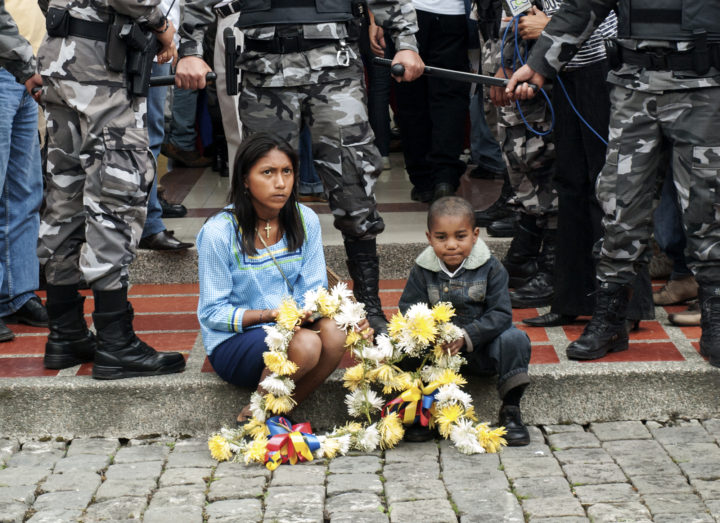On the 2nd of October, the International day of Nonviolence, the people of Colombia went to the polling stations. After the agreement signed between the government of Juan Manuel Santos and the FARC on the 26th of September after four years of negotiation, Colombia had to decide between YES or NO to the agreement. What happened?
What happened is that 63% of the population didn’t vote. They didn’t say either yes or no… Perhaps hopelessness, scepticism, incredulity or simple indifference immobilised them.
So, only 37% gave an opinion, just over 12 million people. And of these 37%, 49.77% said YES to the peace agreements. The people of the Pacific, Caribbean and Amazon provinces said yes: those punished time and time again by war. Afro-descendants, indigenous and people of the countryside. The victims of war said yes, for the first time visible and recognised as participants in the agreements. The younger generations, out of solidarity and yearning for a new country said yes by a wide margin.
But it also happened that 50.74% of those who voted said NO to the peace agreement. Those in the biggest cities, except Bogota. The prosperous regions of the country said no, the regions of industry and big business, those who have made money from war. And paramilitary regions also said no. But many fearful Colombians also said no, convinced that Colombia could end up a Communist state or that the FARC leader Timoleón Jiménez could take over power and take everything away from them. So, the lies were dripped into the consciousness of our people. The people who said NO saw war from far away, as a piece of history unconnected to them.
Colombia is divided, it has been divided for many, many years. Profoundly divided. Today, this profound division was expressed in the polling stations, not in weapons, not in deaths. Surely, it was because everything was portrayed as a confrontation between [government opposition leader] Uribe and President Santos and surely many voted thinking of themselves and not of us as a whole. But at the end of the day, that minimal difference is the sign of a division that accompanies us historically as a people; it has made us intolerant in the face of difference and has made us accustomed to the elimination of the opposition as the only and false way out of a conflict.
In this difficult moment, it is an advance that this division has been expressed without violence. It is an advance that the FARC have kept their word and that the cease fire, indefinite and bilateral, has held. Without the painful noise of weapons and knowing that we still don’t have an agreement, maybe it will be possible to have a broader dialogue and a great national agreement. Maybe this is necessary in order to build a peace for all those who really want it, even if they may have voted no. Maybe.
We have to learn peace and unlearn war. One more pitfall has appeared in the path. Surely we will be able to overcome it, but in the meantime, it is impossible not to feel that peace is a bit further away today than it was yesterday.






